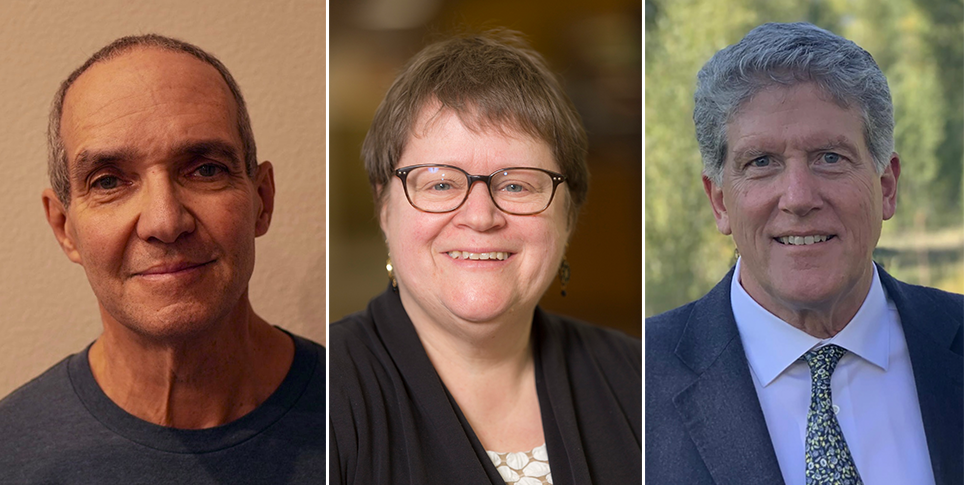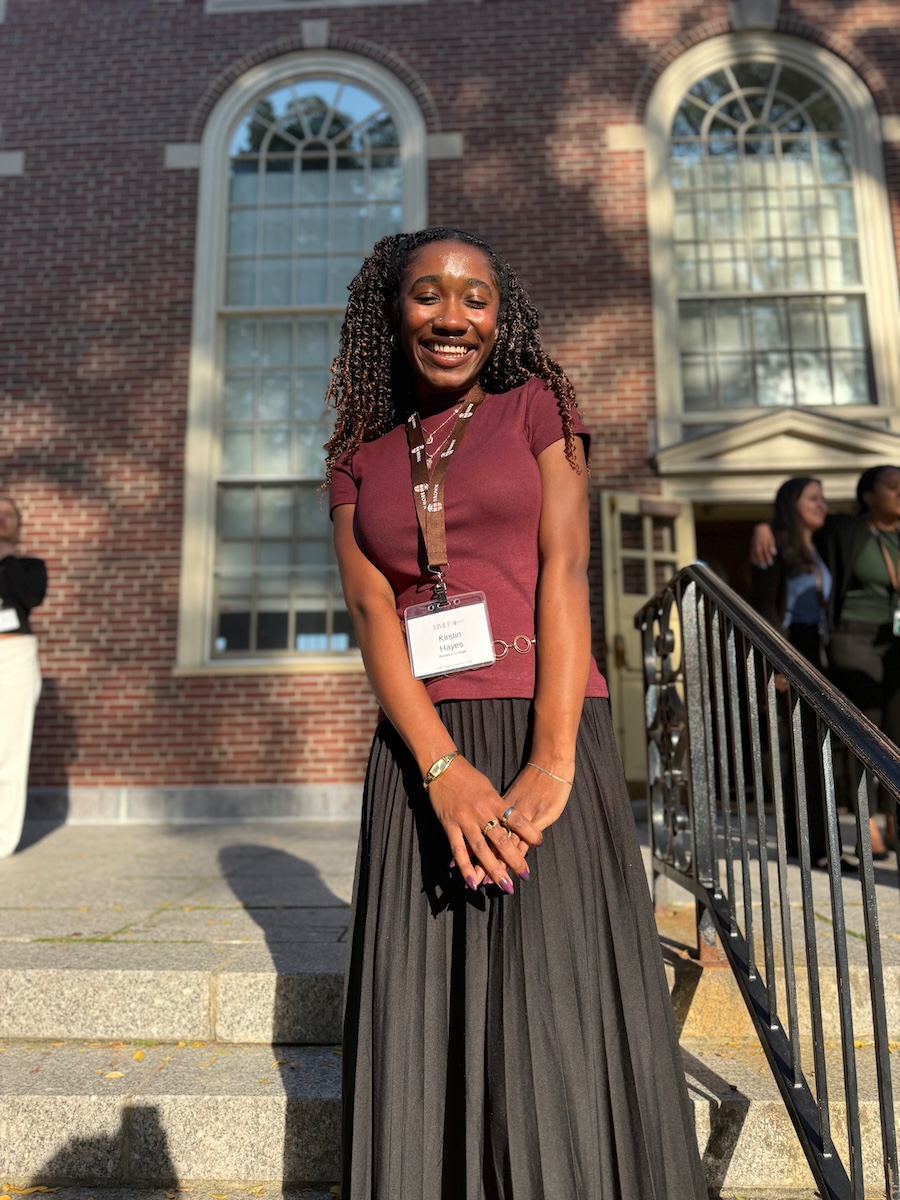Chenault Gift Establishes New Herman S. Dreer Leadership Fellowship at Bowdoin
By Bowdoin NewsThe Chenaults have named the fellowship in honor of Herman S. Dreer, Class of 1910, who was the second Black man to graduate from Bowdoin, eighty-four years after John Brown Russwurm, Class of 1826.
Dreer’s life story—and, in particular, his relationship with the College—is revealed in The Blackman at Bowdoin, the history honors thesis Chenault wrote in 1973.
Dreer graduated in just three years as the second-highest-ranked student in his class. Even so, he was isolated socially because of his race. In his honors thesis, Chenault wrote that “The fact that he was left alone and not intimidated physically by his classmates was all he could expect or ask for. . .. Slavery may have ended but Dreer was tolerated for the most part rather than accepted socially, just as Russwurm had been eighty-one years earlier.”
Chenault went on to write that “according to Dreer, he tried through all his actions to convey to Bowdoin the humanity of the Black man. . . . The mere fact of his presence ‘exploded’ many of the stereotypes of Blacks commonly held by whites at that time.”
In spite of the significant racism Dreer experienced, he led a remarkable life as an academic, educational reformer, author, minister, and civil rights leader. Chenault wrote that Dreer had “a lifelong mission: helping Black people in any way he possibly could, be it educating them, tending to their spiritual needs, or as he did in November of 1972, engaging in a fierce political struggle to help Blacks gain elective office in St. Louis.” Along with historian Carter G. Woodson, Dreer initiated the observance of Black History Month in the United States.
"I stand on the shoulders of people like Herman Dreer who, despite being denied the opportunities they deserved, paved the way and valiantly forged ahead,” said Ken Chenault. “Kathy and I are privileged to honor Herman Dreer and give him the long overdue recognition that he so justly deserves. The Herman S. Dreer Leadership Fellowship will ensure that Herman's legacy lives on to inspire future generations of trailblazers."
Fifty years ago, in preparation for graduation, Chenault encouraged the Bowdoin Afro American Society—of which he was a member—to acknowledge an African American leader annually at the Baccalaureate ceremony. Chenault presented Dreer with the Afro-American Society's first Outstanding Alumnus Award that year, in 1973.
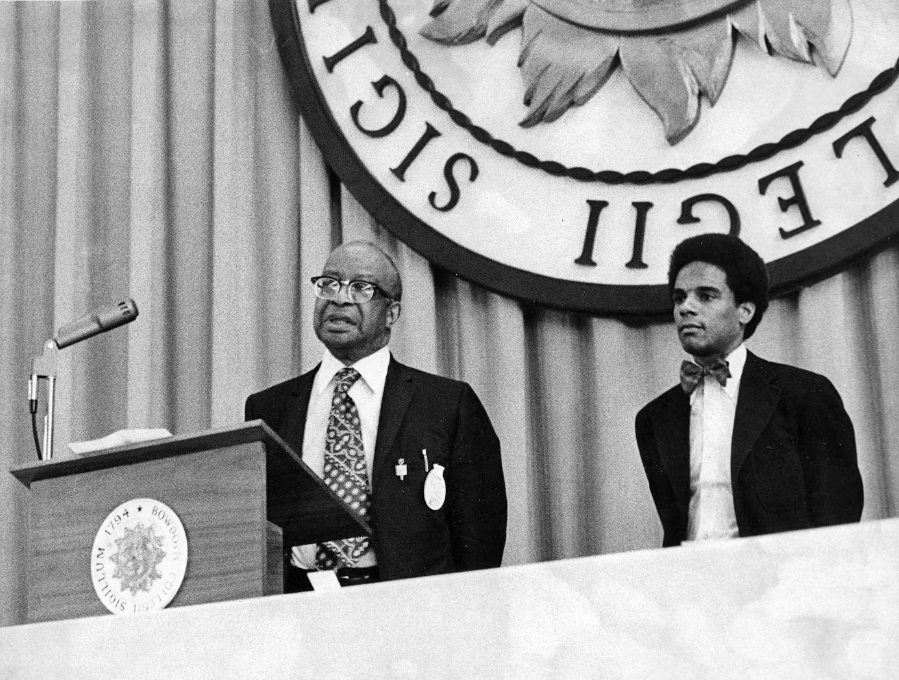
The Herman S. Dreer Leadership Fellowship will support individuals from any professional field—leaders “from all walks of life”—in business, technology, government, law, the arts, the military, the nonprofit sector, and other disciplines.
Dreer Fellows will be named for a semester or an academic year, with the general expectation that they will visit campus several times, deliver a public lecture, and engage with students and the greater Bowdoin community, both inside and outside the classroom.
Additionally, they may also attend classes at faculty invitation, hold office hours for students to provide career and mentoring advice, and meet with alumni (particularly young alumni). They will be invited to engage in the life of the College by meeting with student groups and by sharing meals with students, faculty, and staff in the dining halls.
The Dreer Fellows Program complements the work Bowdoin is doing in several areas of the College—academically, culturally, and in career planning—to significantly expand the sense of possibility for students, especially students from under-resourced and marginalized backgrounds, as they consider their professional aspirations, their leadership potential, and their ability to effect change.
The College will seek Dreer Fellows from across society, including bringing leaders to campus who rose from similar under-resourced backgrounds.
“Dreer Fellows will be an essential part of a new and deliberate effort at the College to further develop leadership skills in our students, to underscore that a Bowdoin education prepares them to accomplish anything they want in their lives, and to aim high—very high,” President Clayton Rose said.
The president will oversee the selection and visits of Dreer Fellows, working with the campus and alumni community.
“This is both a generous gift and a beautiful idea that will bring to the fore an incredible alumnus who had largely been forgotten at the College—a person very important to Ken, whose life he and Kathy want us to understand and celebrate.”
—Bowdoin president Clayton Rose
A Biographical Sketch of Herman S. Dreer, Bowdoin College Class of 1910
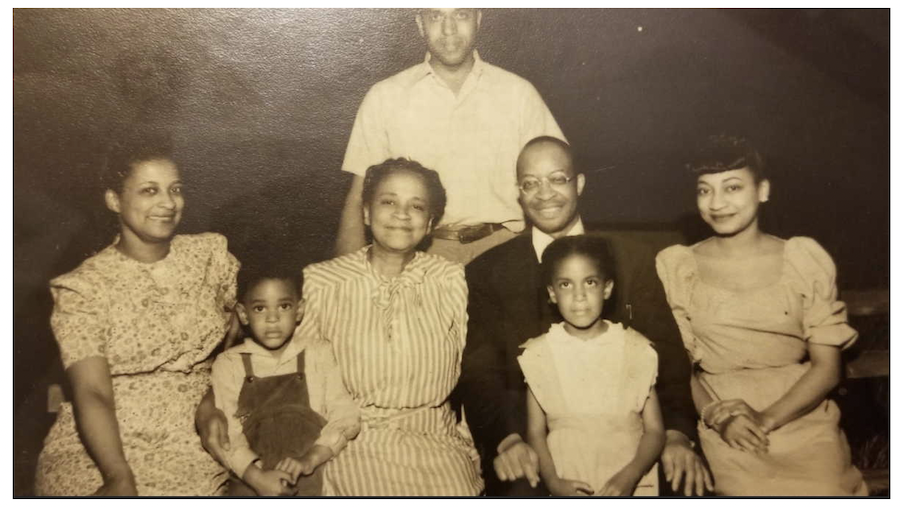
In his 1973 honors thesis, The Blackman at Bowdoin, Ken Chenault examined the lives of Black Bowdoin alumni, including Dreer. In spite of the significant racism Dreer experienced, he led a remarkable life as an academic, educational reformer, author, minister, and civil rights leader.
Along with historian Carter G. Woodson, Dreer initiated the observance of Black History Month in the United States. Each year at Bowdoin and at institutions across the country, February is devoted to celebrating the contributions of Black Americans in every sphere of life.
Dreer was born on September 12, 1889, in Washington, DC, the fourth of five children. Both sides of his family descended from Africans who had been brought by force to the Americas and enslaved. Dreer, who attended high-quality segregated schools, credited his teachers for his ability to cope with racism in America. They included an influential sixth-grade teacher who taught her pupils about Black history and great historical figures, thinkers, and writers, including Chaka of Africa, Aesop of Greece, Booker T. Washington, and W. E. B. Du Bois, among others.
Dreer graduated at the top of his high school class and chose to attend Bowdoin for its “idyllic New England setting” and because his scholarship stipulated that he attend a college outside of his home in Washington, DC.
His academic achievements continued at Bowdoin. He was admired by his peers for his brilliant mind and his gift for public speaking, and he graduated in just three years as the second-highest-ranked student in his class. Even so, he was also isolated socially because of his race. In his honors thesis, Chenault wrote that Dreer “was well aware that few whites had a desire to be involved in a social relationship with him—or any other Black person.”
“The fact that he was left alone and not intimidated physically by his classmates was all he could expect or ask for. In many ways his social life compared easily with the ascetic way John Brown Russwurm was forced to live while at Bowdoin. Eighty-one years had elapsed between Russwurm's departure from Bowdoin and Herman Dreer's entrance into Bowdoin. Slavery may have ended but Dreer was tolerated for the most part rather than accepted socially, just as Russwurm had been eighty-one years earlier,” wrote Chenault.
Chenault went on to write that “according to Dreer, he tried through all his actions to convey to Bowdoin the humanity of the Black man.” And though, had it been possible, he would have preferred more social interactions and friendships with his classmates, “the mere fact of his presence ‘exploded’ many of the stereotypes of Blacks commonly held by whites at that time.”
For two years following his Bowdoin graduation, Dreer taught Latin, physics, and chemistry at the all-Black Virginia Theological Seminary. In 1912, he married Mary J. Thomas, an elementary school teacher, with whom he had two daughters. In 1913, he was ordained a Baptist minister.
From 1914 to 1930, Dreer taught English and directed dramatics at Sumner High School in St. Louis, Missouri, where he was eventually promoted to assistant principal, a position he held until 1940.
“Despite the fact that Dreer was a Phi Beta Kappa graduate of Bowdoin College, he could not find a suitable job—because his skin was black,” Chenault wrote. “At Bowdoin, he was at least allowed freedom in his academic life, but he found it a tremendous struggle to further his education beyond the bachelor of arts degree at other institutions of higher learning.”
According to Chenault, Dreer was rejected by PhD programs at both St. Louis University and Washington University in St. Louis “for the sole reason that he was Afro-American.” Finally, in 1942, when he was fifty-two years old, he was accepted at the University of Chicago, where he went on to earn his MA in English and his PhD in sociology.
He then held a series of academic appointments: professor of English and social sciences at Harris Teachers College in St. Louis; professor of sociology and anthropology at Kansas Wesleyan University in Salina, Kansas; and professor of English at Illinois College and MacMurray College in Jacksonville, Illinois.
“Never neglecting his spiritual life for his academic [life],” wrote Chenault, Dreer also served as pastor of several churches in the St. Louis area, including the Kingsway Baptist Church, from which he retired in 1972 after twenty years.
Dreer was the author of several books, including The Immediate Jewel of His Soul, a story of a Black man who battled the Ku Klux Klan; The History of the Omega Psi Phi Fraternity, the famous all-Black national fraternity; American Literature by Negro Authors; and his dissertation, Negro Leadership in St. Louis, Missouri from 1821 to 1950. He also was an editor of a “Negro History” column in the St. Louis Argus, a Black newspaper founded in 1912 that earned the coveted John Brown Russwurm Award from the National Newspaper Publishers Association.
Dreer had “a lifelong mission: helping Black people in any way he possibly could, be it educating them, tending to their spiritual needs, or as he did in November of 1972, engaging in a fierce political struggle to help Blacks gain elective office in St. Louis,” Chenault wrote. “There is no doubt that Dreer used his college education to the fullest extent that he was allowed.”
Dreer died in 1981, at the age of ninety-two. He was survived by his wife, Mary, who died in 1985, and daughters Vivian (1916–2006), who was a teacher, counselor, and community activist, and Clarice (1913–2003). His granddaughter, Carol Randolph-Jasmine, who earned her law degree at Catholic University, has had a varied career as an award-winning television anchor and journalist, literary agent, legal counsel for artists, authors, and athletes, and public relations executive.
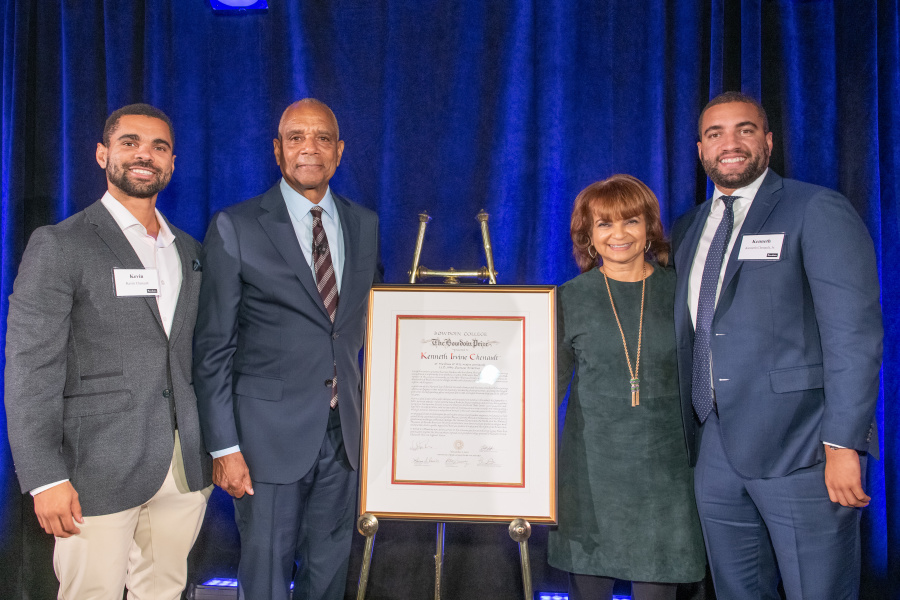
Kenneth Irvine Chenault ’73 is the chairman and a managing director of the venture capital firm General Catalyst. Prior to joining General Catalyst, Chenault was chairman and chief executive officer of American Express, a position he held from 2001 to 2018. Upon Ken’s retirement from American Express, Warren Buffett, the company’s largest shareholder, stated, “Ken’s been the gold standard for corporate leadership and the benchmark that I measure others against.”
At General Catalyst, Chenault focuses on investing in fast-growing companies that have the potential to become large, fundamental institutions. He also provides invaluable guidance to portfolio companies, particularly to those with an eye toward global markets and responsible innovation as they scale their teams and products.
Chenault is recognized as one of the business world’s experts on brands and brand management. He has been honored by multiple publications, including Fortune, which named him one of the “World’s 50 Greatest Leaders” in its inaugural list in 2014 and again in 2021. TIME celebrated Chenault together with Ken Frazier for their corporate and social activism in the TIME100 Most Influential People of 2021 list—specifically, for mobilizing hundreds of corporate leaders to advocate for equitable voting rights in the US and for co-founding OneTen, a coalition of leading executives coming together to upskill, hire, and advance one million Black Americans over the next ten years into family-sustaining jobs with opportunities for advancement.
Chenault serves on the boards of Airbnb, Berkshire Hathaway, Chief, Guild Education, and the Harvard Corporation. He also serves on the boards of several nonprofit organizations, including the Smithsonian Institution’s Advisory Council for the National Museum of African American History and Culture, of which he is the chair.
Chenault’s athletic ability earned him a scholarship to Springfield College, but he transferred to Bowdoin after his high school headmaster, Peter Curran ’46, introduced him to the College and brought him for a visit. He earned his bachelor’s degree, magna cum laude, in 1973 and a JD from Harvard Law School in 1976. He is an emeritus board member of the College.
In November 2022, Bowdoin awarded Chenault with The Bowdoin Prize—the highest honor the College bestows upon its members.
